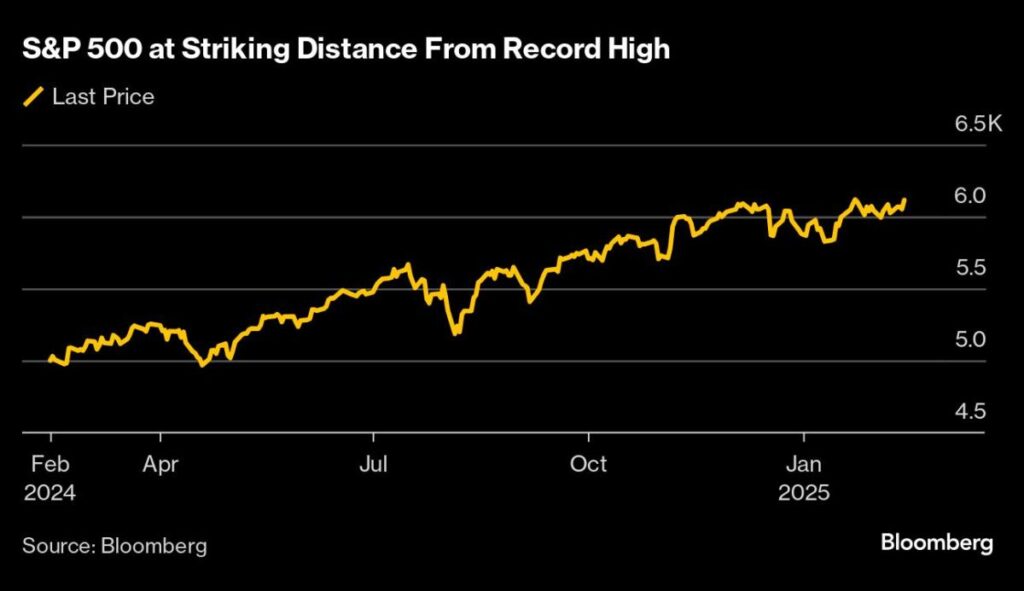(Bloomberg) — Asian equities advanced Friday as markets reacted positively to signs reciprocal US tariffs may be weeks from coming into effect, raising the prospect for negotiations that could make them less punitive.
Most Read from Bloomberg
A benchmark of Asian shares gained for a third day, while US equity index futures also ticked higher. That was after the S&P 500 climbed toward a record on Thursday, helping propel a measure of global shares to an all-time high. Contracts for European futures traded lower. The South Korean won and the yen strengthened, while a gauge of the dollar held near a two-month low.
The support for equities suggests investors have focused on speculation the talks may blunt the impact of the tariffs, echoing the response to delays on those leveled at Canada and Mexico earlier this month. The Bloomberg Dollar Spot Index has dropped about 2.5% from February’s high as investors wind back bets that Trump is determined to ramp up global tariffs as part of his “America First” policy.
“The fact this is a slow burn approach from Trump, with the chance many of the tariffs will be extinguished, is supporting market sentiment,” said Kyle Rodda, senior market analyst at Capital.com.
The work required to propose reciprocal tariffs will occur on a country-by-country basis and could take until April to complete, said Howard Lutnick, Trump’s nominee to lead the Commerce Department.
The comments followed news that Trump had ordered his administration to consider reciprocal tariffs on numerous trading partners, singling out Japan and South Korea as nations that he believes are taking advantage of the US.
As much as 92% of 153 respondents to a Bloomberg survey expect US tariffs of some sort to be implemented within six months. More than half of the participants expect the US to place tariffs on at least some economies and over a third expect universal levies to be enacted as well.
An index of the dollar was little changed Friday after its biggest drop in three weeks in the prior session. Growing speculation that new tariffs are a negotiating tool is undermining the popular trade of betting on the dollar.
“This is just the start of the dollar unwind,” said Charu Chanana, chief investment strategist at Saxo Markets Pte in Singapore. “Dollar gains have been driven by tariffs threats and US exceptionalism. It is very clear now that tariffs will be targeted rather than broad, with the underlying motives of national security and trade fairness.”
Story Continues


